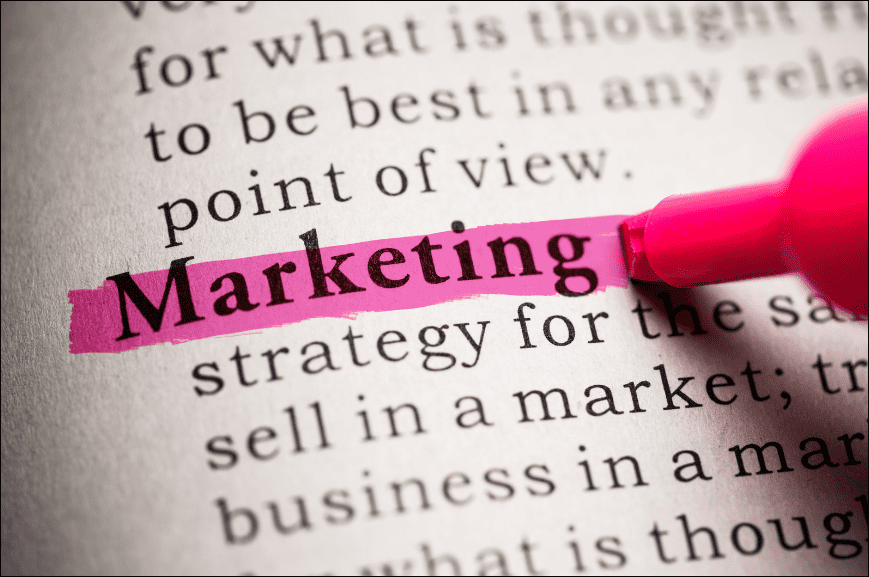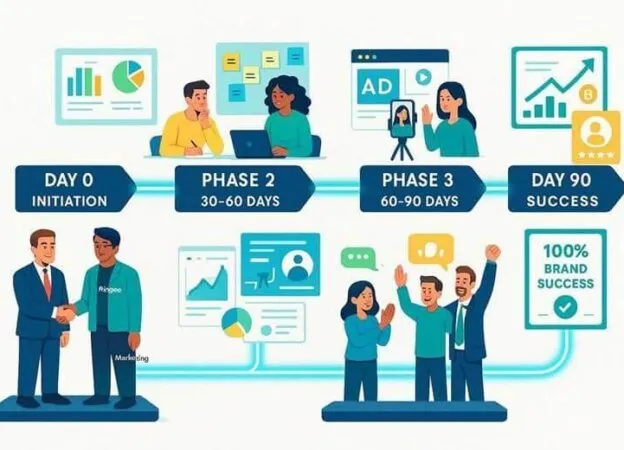Since the market is one big competition, businesses must find ways to differentiate themselves from others. This is why marketing is essential as it can be a valuable tool to stand out.
Table of Contents
Effective marketing goes beyond mere product or service promotion; it’s about building relationships, fostering familiarity, and creating a positive brand experience.

This article delves into the reasons why advertising is essential and provides a roadmap for crafting a promotional plan that brings your business toward success. Check it out!
3 key reasons why marketing is essential in business development
When starting a company, entrepreneurs often create a business plan, but overlook a marketing plan. This is a big issue because it’s hard to succeed in the market without a strong promotional strategy. At the same time, there is no marketing plan vs.business plan competition. Both play a role in promoting your company.

Marketing plays a multifaceted role in propelling businesses forward. It facilitates brand awareness and customer acquisition and cultivates trust, a critical ingredient for long-term success.
Let’s delve into three key reasons why marketing is indispensable for businesses:
- Brand awareness. Brand awareness is the foundation upon which a successful business is built. A study conducted by the marketing agency Red C highlights the importance of brand awareness, revealing that 82% of consumers opt for brands they are familiar with when purchasing. By consistently showcasing your brand’s unique value proposition, you effectively etch your name in the minds of consumers. This helps you become their preferred choice when they seek products or services in your domain.
- Acquiring customers. Marketing is the driving force behind customer acquisition. It’s how businesses reach out to new audiences, introduce them to their products or services, and entice them to become customers.
- Building trust. Trust is the bedrock of enduring customer relationships. When consumers rely on a brand, they are more likely to engage with its products or services, make repeat purchases, and recommend it to others. A Salesforce report reveals that 88% of consumers prioritize trusting a brand now more than ever. Effective marketing strategies cultivate trust by communicating with transparency, authenticity, and a focus on customer loyalty for business success.
Why Marketing Is Essential
Marketing is the strategic process of promoting and selling products or services. Its importance lies in creating awareness, attracting customers, driving sales, gaining a competitive edge, and fostering customer loyalty for business success.
You can achieve this through various marketing channels, such as advertising campaigns, social media, and content marketing.
The growing role of digital marketing
There are many different types of marketing, but they can be broadly classified into two categories: traditional and digital marketing. Traditional involves offline channels such as print advertisements, television and radio commercials, direct mail, and billboards.
Digital marketing utilizes the power of the internet and technologies to reach and engage with consumers. This includes a variety of channels, such as search engine optimization, social media marketing, content marketing, pay-per-click advertising like Google Ads, and email marketing.

Today, the importance of online advertising and digital marketing is increasingly growing, and industry professionals are dedicating more effort to them. Statista revealed that U.S. chief marketing officers reported an average 8.2% increase in digital marketing spending.
As consumers spend more time online, businesses adopt promotional strategies to effectively reach their target audience. A significant advantage of digital marketing is its global reach, which allows you to connect with potential customers worldwide.
Additionally, it is often more cost-effective than traditional marketing methods, such as print advertisements or television commercials.
Why marketing is essential even more so today for entrepreneurs
Marketing for entrepreneurs is more critical due to the growing competition in today’s digital era. With increased access to information, businesses need effective marketing strategies to stand out and reach wider audiences online.
Moreover, in a world where consumer preferences evolve rapidly, marketing is the compass guiding business owners through these shifts.
The importance of a marketing plan: why you should make one before launching promotions

A marketing plan is a comprehensive strategic document that serves as a blueprint for an organization’s marketing endeavors. It outlines the organization’s marketing objectives, strategies, and tactics, providing a clear direction for achieving specific business goals.
By carefully defining the target audience, crafting compelling messaging, and selecting the most effective promotional channels, a marketing plan acts as a roadmap for businesses to navigate the intricacies of reaching their target market and achieving sustainable growth.
A well-defined marketing plan offers a multitude of benefits:
- Improved focus. A marketing plan provides a clear direction and focus for promotional activities. This minimizes scattered efforts and ensures that resources are directed toward the most impactful initiatives.
- Goal alignment. By clearly establishing objectives and strategies, a marketing plan ensures that everyone within the organization is working towards the same goals. This alignment fosters collaboration, eliminates miscommunication, and increases the likelihood of achieving desired outcomes.
- Resource efficiency. A marketing plan helps organizations make informed decisions about resource allocation. This leads to a more efficient use of time and materials, maximizing return on investment (ROI).
- Better decision-making. Creating a marketing plan involves thorough research, analysis, and strategic planning. This equips decision-makers with valuable insights into the target market, competitive landscape, and marketing trends, helping them make informed choices that align with the organization’s overall business objectives.
FAQ: What are the advantages of marketing?
The advantages of marketing include:
- Greater market share. Marketing widens product/service visibility, attracting more customers;
- Reduced costs. Efficient marketing strategies save costs by targeting the correct audience;
- Improved customer relationships. Marketing channels foster engagement;
- Enhanced brand reputation. Through consistent positive messaging, marketing builds a strong brand reputation.
How to create a marketing plan

Here are a few consistent steps you can take to create a solid marketing plan:
- Define your goals and objectives. Understand the priorities you want to achieve through marketing. These goals should be specific, measurable, achievable, relevant, and time-bound (SMART).
- Identify the target audiences that you want to reach with your marketing efforts. Tailor your promotional strategies to resonate with clients’ needs and preferences.
- Conduct a situation analysis. Use a SWOT matrix (Strengths, Weaknesses, Opportunities, Threats) to identify internal and external factors that may impact your marketing efforts.
- Develop your marketing strategies. Based on your goals, target audience, and situation analysis, formulate a clear and effective plan.
- Create a marketing budget. Consider the costs associated with various channels such as digital advertising, social media, content creation, events, etc. Ensure that your budget aligns with your overall business goals.
- Get feedback from others. Seek input from key stakeholders, team members, and, if possible, potential customers. This diverse feedback can provide valuable insights and perspectives.
- Review and update your plan regularly. Your marketing plan should be a living document that you will make changes to as you go.
Final Words on Why Marketing is Essential
It is hard to overstate why marketing is essential in a business due to high competition. Proper marketing helps companies reach more people, understand their customers better, and keep up with the latest trends. It makes it clear who your customers are and what their pain points are; as a result, it becomes easier to conquer new markets.



